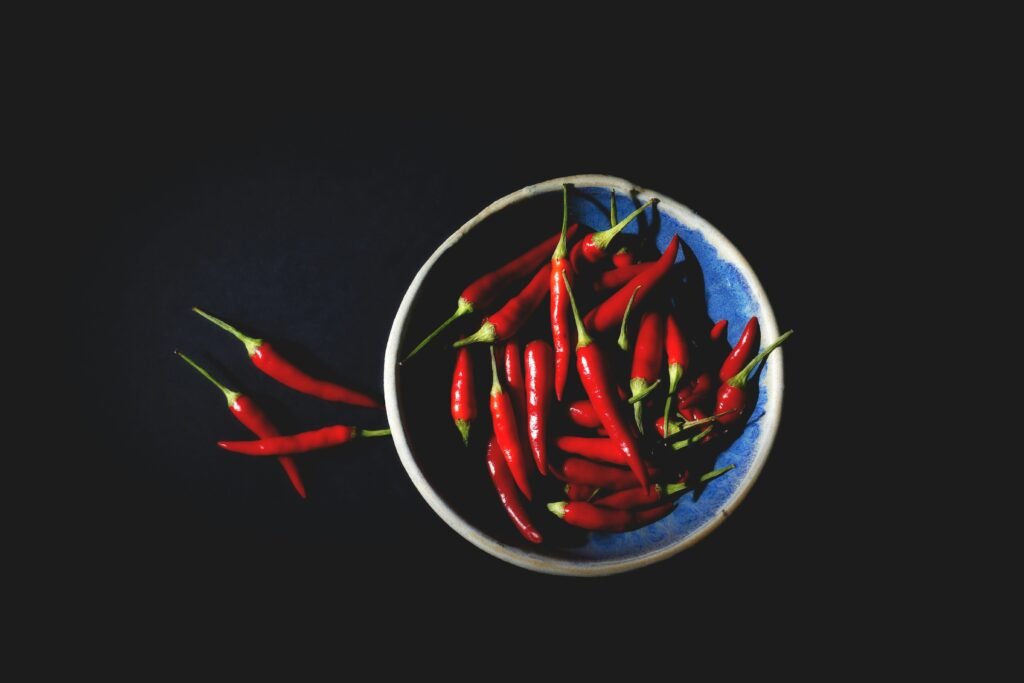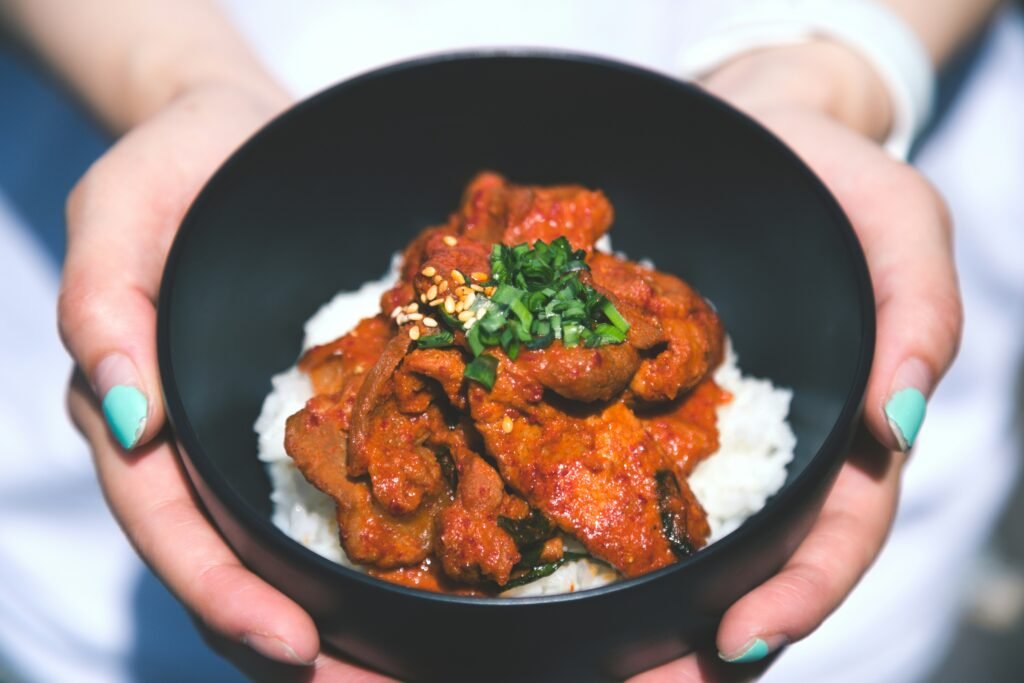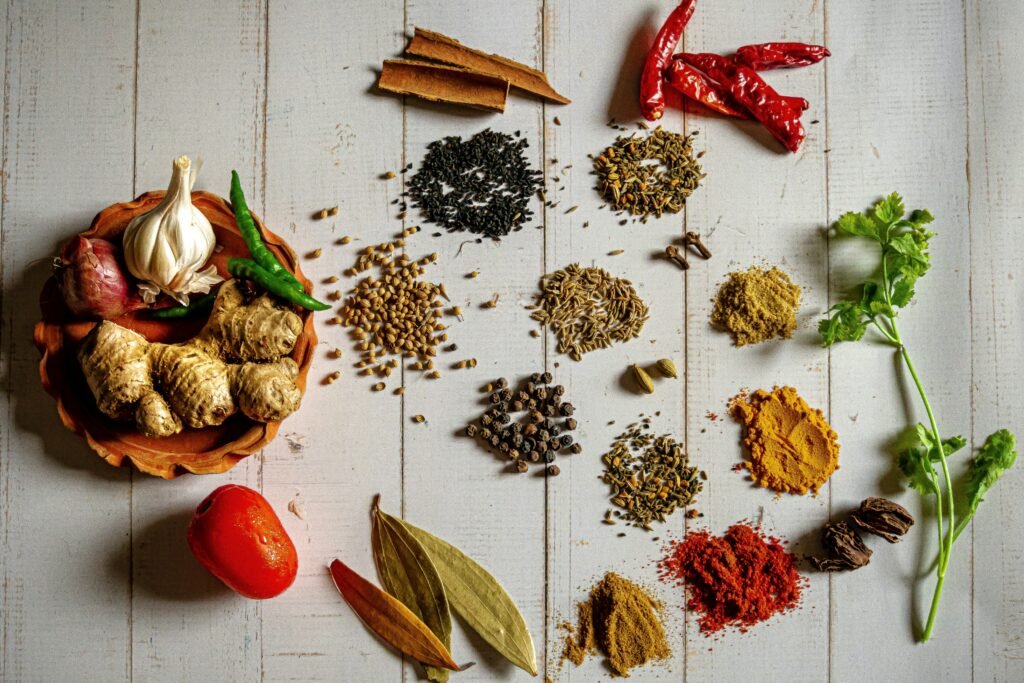From Buffalo chicken to kimchi and Tajín, spicy food is enjoyed in many cultures. Whether it’s with different kinds of peppers, the heat is always present. Even if you’re used to Spicy Food, you might not know how it affects your health.
In this article, we’ll talk about what studies say about spicy food and share some tasty ways to spice up your meals.

The Positive Effects of Spicy Food on Health
There are following positive effects of eating spicy food. Let’s figure them out.
Spicy Food Could Lower Your Blood Pressure
When you have high blood pressure, doctors often tell you to eat less salt. But what about spicy food?
In a study on Chinese adults, women who said they usually ate spicy food had a 26% lower chance of having high blood pressure compared to those who didn’t eat spicy food, according to a 2019 study. (This wasn’t the case for men.)
Although scientists are still figuring out why, early animal studies suggest that capsaicin, the stuff that makes chili peppers hot, might help fight high blood pressure caused by eating too much salt. Interestingly, the food that people rated as “moderately” spicy in the study was best for blood pressure. So, add some spice to your food, but you don’t have to overdo it.
Improving Heart Health with Spicy Food
Eating spicy or Ultra-processed food might make you sweat, but it’s good for your heart. A review in a science journal from 2022 found that people who eat spicy food often are less likely to die from heart disease or stroke.

However, this study only found a connection, not a definite cause. This means we can’t say for sure that spicy food directly makes your heart healthier, but there’s something about those who eat spicy food regularly that makes them less likely to die from heart problems.
One reason for this might be that spicy food helps improve your cholesterol levels. Alice Figueroa, who knows a lot about food and health, says that although we need more studies to be sure, eating spicy peppers that contain capsaicin could raise the good kind of cholesterol (HDL) and lower the bad kind (LDL), which can cause heart disease.
Spicy Food Can Leave You Feeling More Content
The strong and exciting taste of spicy food can change how hungry you feel. Spicy food might make you feel full faster, which can be good for your relationship with food. Figueroa says, “Feeling full and satisfied is important for having a healthy connection with food.”
Spicy Food Might Help You Live Longer
Eating spicy food more often might help you live longer, according to a study in the journal Angiology from 2021. The study looked at over 500,000 adults. People who ate spicy food more than once a week were 12% less likely to die from any cause over 10 years compared to those who didn’t eat spicy food.
One reason for this could be that capsaicin, the stuff that makes food spicy, fights against obesity. This means it might lower the chances of getting diseases like type 2 diabetes that come with being overweight.

Also, capsaicin might give your body antioxidants and make your gut healthier, both of which can protect you from getting sick, say the researchers.
Possible Drawbacks
We have discussed about positive benefits of eating spicy food. But now it’s time for the negative effects of eating spicy food on your health. So let’s figure them out.
You Might Make Heartburn Worse
If you sometimes get heartburn or have a more serious condition called gastroesophageal reflux disease (GERD), spicy food can make it worse. A review in Preventive Nutrition and Food Science from 2021 says spicy food is a common trigger for these issues.
Zariel Grullón, who knows a lot about food and health, says, “People with heartburn or a stomach problem like gastritis should be careful about how much spicy food they eat because it can irritate them.”
You Might Experience Digestive Problems
Spicy food can cause more than just heartburn. Figueroa talks about a study from 2020 in the Journal of Crohn’s and Colitis. It found that many people with inflammatory bowel disease (IBD), like ulcerative colitis and Crohn’s disease, said that spicy food made their symptoms worse.

Also, if you have irritable bowel syndrome (IBS), spicy food might make your symptoms worse too.
Ways to Add Flavor to Your Meals
If you’re excited about the health benefits of spicy food, it’s a good idea to take it easy at first. This way, you can make sure spicy foods don’t upset your stomach.
Start with mild peppers that aren’t too spicy, like Anaheim, ancho, poblano, or jalapeño. You can also try dried chili or pepper flakes. Here are four spicy foods to add more flavor to your meals:
Chili oil: This spicy sauce is made by mixing oil with chili peppers. It’s perfect for adding extra flavor to dishes like eggs, noodles, and vegetables. To get started, try the Spicy Cucumber Salad with Chili Oil.
Kimchi: Kimchi is a spicy Korean dish made with fermented vegetables. You can make it yourself or buy it at Asian markets. It’s delicious with rice, noodles, soup, and other dishes. Give the Pork & Kimchi Fried Rice a try!
Pickled veggies: “One of the ways I love to make food spicy, other than using hot sauce or chili oil, is by making a side dish with pickled onions and jalapeños, which my mom used to make for us when I was young. It not only adds heat but also adds a tangy flavor to your meals,” Grullón says. You can try making these Spicy Pickled Carrots for a similar taste.
Hot sauce: There are lots of different hot sauces available, each with its own level of spiciness and taste. To make your meals spicier, just keep a bottle of hot sauce nearby and add it to tacos, rice bowls, or eggs whenever you want.
